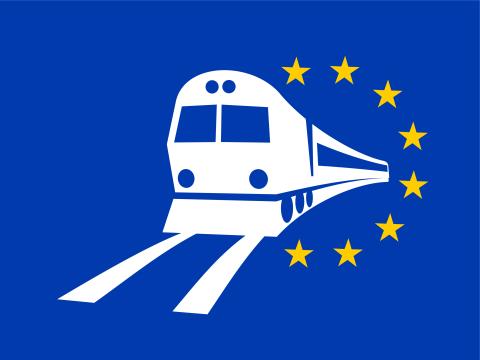European Economic
and Social Committee
EESC backs the European Year of Rail in 2021
The European Economic and Social Committee (EESC) lends its support to the European Commission's proposal to make 2021 the year of travelling by train.
Rail should play a prominent role in the EU's future mobility and become the primary form of transport. For this reason, the EESC is pleased to support the European Commission in proposing to mark 2021 as the Year of Rail.
In the opinion approved at the July plenary session and drafted by Alberto Mazzola, the Committee says that, on the one hand, the EU has to invest more in rail in line with the goals of the European Green Deal and, on the other, it has to raise its visibility, bringing about a debate on passenger services, including on people with reduced mobility, digitalisation and environmental sustainability.
Against the backdrop of the European Year of Rail in 2021, rail will be showcased as a prime example of smart mobility and an innovative and safe mode of transport, with efforts to reach out to the wider public, especially young people. Projects, debates, events, exhibitions and initiatives organised throughout Europe will be aimed at citizens, businesses and authorities and explain why rail is an attractive and sustainable way of travelling across Europe, emphasising its EU-wide aspect.
Commenting during the plenary, Mr Mazzola stressed that this initiative should also be an opportunity to better communicate the attractiveness of a career in rail, especially to young Europeans, by supporting joint initiatives with social partners, universities, the academic community at large as well as European youth organisations
.
In addition, the Year of Rail should help provide fresh impetus to the DiscoverEU initiative, which gives young Europeans the opportunity to discover Europe through learning experiences. In particular, the EESC supports the idea – originally put forward by the European Parliament – to offer every European citizen, when they turn 18, the possibility to apply for a DiscoverEU travel pass (with a certain number of successful applicants) as a symbol of EU identity.
At the same time, it will also be an occasion to celebrate the history of rail, its technological advancement as well as the story of a European continent coming closer together thanks to railway connections. In 2021, the Belgian and French railways will celebrate the 175th anniversary of the rail link between Paris and Brussels, the very first capitals in the world to be connected by a railway line. 2021 will also coincide with the 25th anniversary of Thalys and the 170th anniversary of the first service on the Saxo-Bohemian rail link between Prague and Dresden.
Other railway anniversaries in 2021 are the 50th anniversary of the Mulhouse Train Museum and the 75th anniversary of Luxembourg Railways. Remarkably, 2021 will also be the year of the 45th anniversary of the first Pendolino in Italy, the 40th anniversary of the TGV in France and the 30th anniversary of the ICE in Germany. It also marks the 20th anniversary of the publication of the EU's first white paper on railways in Europe.
It would be also useful to use the Year of Rail to promote the initiatives of Europalia, which every two years presents to the public in Belgium and neighbouring countries a programme of events and exhibitions about themes with a strong European dimension and perspective, attracting high numbers of visitors, many of them from abroad. Next year, Europalia will take place from October 2021 to January 2022 and focus on the subject of railways and the influence they have had and continue to have on the way in which we travel, work, communicate and live in Europe.
Rail is one of the most environmentally friendly and energy-efficient transport modes and can play a significant role in accelerating the reduction in transport emissions. Being largely electrified, it emits far less CO2 than equivalent travel by road or air. It is also the only mode of transport to have cut CO2 emissions since 1990 almost without interruption, despite increasing transport volumes. In addition, rail accounts for only 2% of the total EU transport energy consumption and increasingly uses renewable energy sources.
In spite of being a smart, safe and sustainable form of transport, rail needs fresh impetus to make it more attractive to travellers and businesses and to realise its full potential. Many obstacles remain to achieve a true Single European Rail Area and while rail's share of passengers in EU land transport slightly increased between 2007 and 2016, its share of freight decreased to 16.65% in 2017.
During the coronavirus pandemic, despite the very sharp drop in demand, rail operators and railway workers managed to provide essential services wherever possible, enabling medical staff and key workers to continue to commute to work. Europe's recovery following the COVID-19 crisis will therefore also be an opportunity to relaunch and improve passenger and goods transport by rail.
